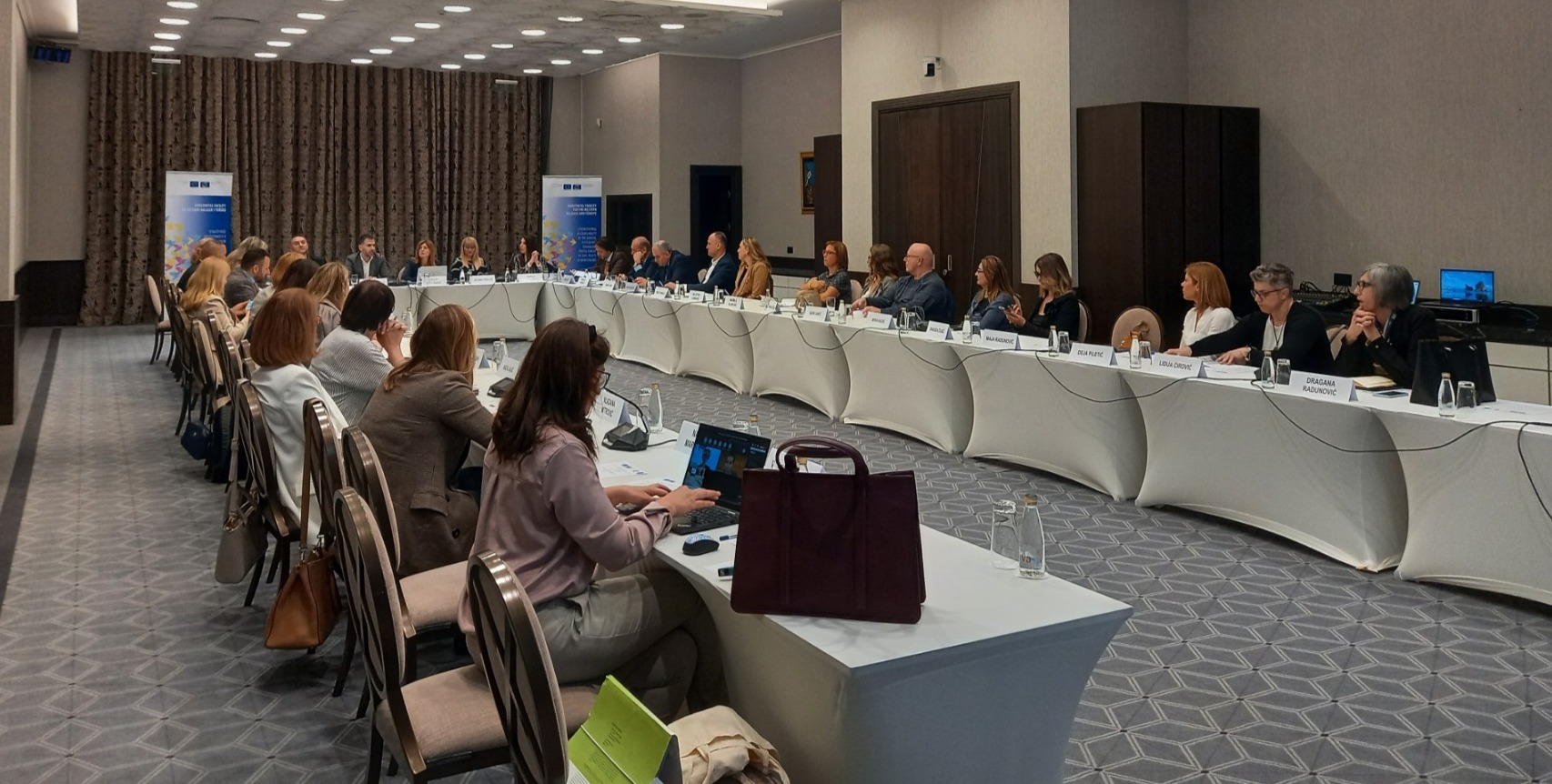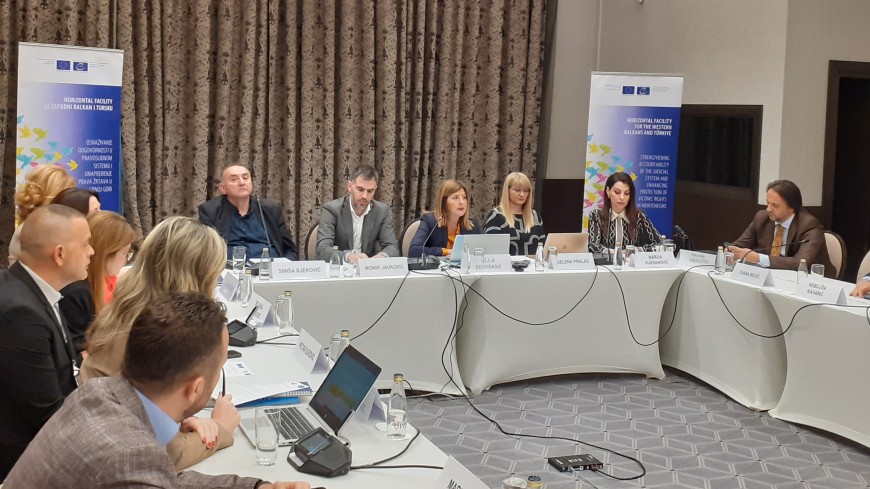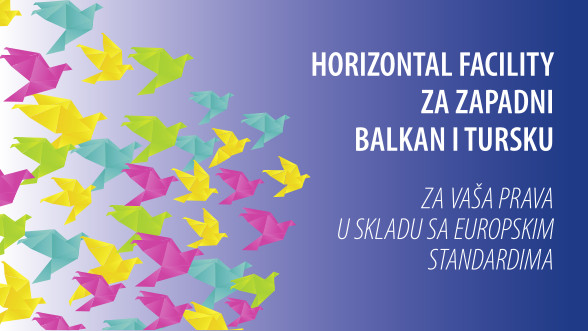Due to their role in judicial proceedings, court interpreters play an essential role in ensuring the equality of citizens in justice-related communications. In Montenegro, around 400 licensed court interpreters provide services for 25 languages in the proceedings before the police, the prosecution and the court.
Within the joint European Union and Council of Europe Horizontal Facility programme, continued support is being provided to the court interpreter community in Montenegro, to strengthen its accountability and viability. The Code of Ethics of Court Interpreters was developed and adopted in 2020. A successful regional event was held in 2022, to exchange best practices among court interpreters’ associations from the region and promote professionalism among their members.
As a continuation of these efforts, round table for judges, state prosecutors, lawyers, notaries, public bailiffs, court experts and court interpreters was organised under the action „Strengthening accountability of the judicial system and enhancing protection of victims’ rights in Montenegro”, in co-operation with the Montenegrin Legal Interpreters and Translators’ Association and Judicial Training Centre, to address practical problems in ensuring accessibility of interpretation services in the context of access to justice. Participants of the round table discussed the practice of the Constitutional Court and of other courts in Montenegro, as well as relevant standards and case-law of the European Court of Human Rights concerning the right to interpretation and their convergence with the EU Directive 2010/64 on the right to interpretation and translation in criminal proceedings. Professional and accountability standards pertinent to court interpreters and translators in Montenegro were promoted. Particular focus was placed upon practical challenges to court interpreting as well as mechanisms for preventing possible malpractices and ensuring impartiality and quality of interpretation in all relevant legal procedures.
The round table resulted in concrete conclusions and recommendations for improving court interpreting practices in the judicial proceedings, but also in the proceedings before the police, the prosecution, notaries, bailiffs and also in the attorney-client relations, contributing to building a common legal culture and reinforcing mutual trust among legal professionals for the ultimate benefit of citizens.



